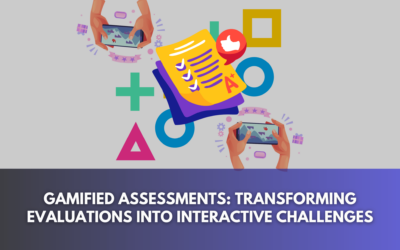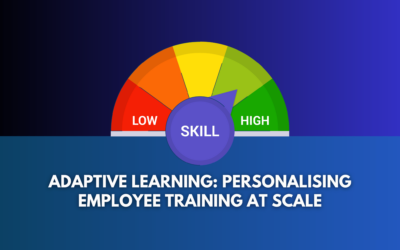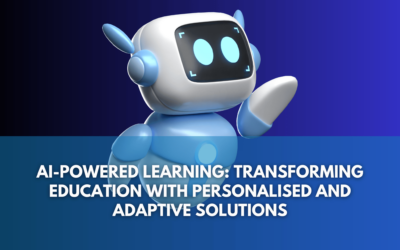How artificial intelligence helps businesses
Introduction
How artificial intelligence helps businesses is a hot topic for everyone in the industry. It’s not just about machines being able to perform tasks that previously required human intelligence–it also involves using AI as part of your marketing or sales strategy.
Natural language generation.
Natural language generation is the ability to generate text in a human-like way. It can be used in customer service chatbots, marketing content, and automated reports.
In customer service chatbots, the bot will be able to respond to user questions and queries by generating responses that are more natural than those generated by a traditional search engine. For example, if you ask “How do I get from here to there?” the bot might say “To get from here to there, take an elevator down two floors.” This is better than simply giving directions because it shows both confidence in its knowledge base and understanding of context (elevator vs stairs).
Natural language generation also plays an important role when creating marketing content for websites or social media pages where text-based user interactions are common (e.g., Facebook posts)
Robotics.
Robotics is a branch of artificial intelligence that deals with the development of robots. Robots can perform tasks that are normally done by humans, including factory work and maintenance. Robots are used in many industries, from manufacturing to healthcare and research labs. They’re also being used for jobs that were once thought to be too difficult for machines: teaching people how to learn English or helping disabled individuals regain their mobility after injury or stroke.
Robots may be programmed to do many things–like playing chess or driving cars–but they’re often programmed based on repetitive tasks like vacuuming floors or moving objects around safely on factory floors without damaging delicate parts like wires or tools (this is known as “swarm robotics”).
Machine learning.
Machine learning is a subset of artificial intelligence that involves using data to make predictions. It’s used in areas such as image recognition, speech recognition and translation, recommendation engines and fraud detection.
Machine learning can be applied to any situation where you have multiple inputs (e.g., images or text) and you want to create an output from those inputs that can’t be predicted by any single algorithm; for example: predicting customer behavior or recommending goods for sale by an online retailer.
Expert systems.
Expert systems are computer programs that mimic the decision-making ability of human experts. They can be used in many situations, such as medical, financial, or legal issues. Expert systems use data to make predictions about future events and then adjust their own behavior accordingly.
For example, let’s say you’re looking for a new car but don’t want to pay more than $30k for it because you’ll need to trade it in soon anyway (this will be discussed later). An expert system would tell you how long each model has been on sale by month and year; it would also compare this information with other cars with similar features but lower prices so that it could figure out which one was most likely to sell within three months’ time and at what price point – allowing them to determine whether or not they should keep looking around further before buying anything else!
Neural networks.
Neural networks are a type of artificial intelligence that uses the human brain to learn. They’re used in machine learning, image recognition, speech recognition and natural language processing.
In this article we’ll look at how neural networks work, why they’re so effective at what they do and what you can use them for yourself.
How AI is used in marketing and sales.
AI is used in marketing and sales to help businesses better understand their customers, predict trends, create personalized content and automate repetitive tasks.
In the marketing area:
- AI can be used to analyze data and predict trends. For example, if you’re looking at your email analytics dashboard (or anything else), it might tell you that people are more likely to open an email from one of your competitors than they are from another company in your industry or niche market. This might mean that if another company sends out an offer on a particular day at 3pm EST–even though it’s not very relevant for them–it will get opened by many more people than it would have without this information being available through AI technology!
Customer service chatbots.
Customer service chatbots are an incredibly powerful tool for businesses. They can be used to answer customer questions, FAQs and complaints in real time. You can also use them for live support or helpdesk support when you have a limited number of employees on hand.
Chatbots are great because they allow you to automate your processes so that the task of answering customer questions is done by an artificial intelligence solution instead of human beings who would take too long with each request (and possibly not be as efficient).
Virtual assistants.
Virtual assistants can help businesses with a variety of tasks, from scheduling and calendar management to email management and customer service. These virtual assistants can also be used for research and data analysis, social media management and more.
Businesses of all kinds need to understand how artificial intelligence works and how it can be put to good use in their business
Businesses of all kinds need to understand how artificial intelligence works and how it can be put to good use in their business. If you want to take advantage of this technology, there are a few things you should know:
- AI will help businesses by automating some of the most tedious and time-consuming aspects of their work. For example, an employee at a bank might have several tasks that involve checking account balances and making sure customers have enough money in their accounts. Instead of hiring someone full-time just for this one task, businesses may be able to use AI instead–and save money along the way!
- Artificial intelligence will also help companies by providing them with new ways of doing things that were not previously possible (or even necessary). In other words: they will become more efficient while still providing high quality service or product offerings at low costs over time because they’re using newer technologies such as machine learning/artificial intelligence etc., which means less staff resources needed per unit output amount produced at each stage level within production processes like engineering departments when compared against past scenarios where manual labor was used instead.”
How artificial intelligence helps businesses – Conclusion
The future is here, and it’s not going to be the same as before. Artificial intelligence will continue to evolve and develop in ways that we can’t even imagine now. We could be looking at driverless cars, automated factories, smart homes with robotic assistants for everything from cleaning to vacuuming
And if you’re a business owner or marketer, how will all this affect your company? It might seem like something out of science fiction but there are already companies offering AI solutions for things like customer service chatbots that can help with customer experience management (CEM). These bots are an excellent way of providing real-time answers when customers need help or simply want more insight into what’s happening within their organization!
Learn about AI in E-learning Industry.
Our News
- AI
- Animations
- Articulate
- Articulate 360
- Articulate Engage
- Articulate Live
- Articulate Presenter
- Articulate Quizmaker
- Articulate Replay
- Articulate Review
- Articulate Storyline
- Articulate Storyline 3
- Articulate Studio
- bite sized learning
- Characters
- Content Library
- Corporate Communication
- E-Learning
- e-Learning Authoring Tools
- Employee Engagement
- Game-Based Learning
- Gamification
- Gamiflexer
- Go Sales
- Healthcare
- Instructional Design
- Interactivity
- Knowledge Transfer
- L&D Trends
- Learning
- Learning & Development
- Learning Experience platform
- Learning Management System
- LMS
- LXP
- Microlearning
- mLearning
- Mobile Learning
- Nugget Learning
- Online Training
- Peek
- Performance Support
- Preso
- Quiz and Assessment Platform
- Replay 360
- Rise
- SCORM
- Screen Capture
- Software
- Storyline 360
- Studio 360
- Training Management
- Trainings
- Uncategorized




